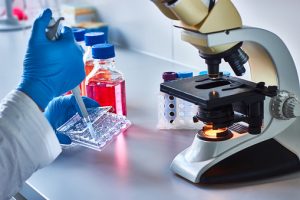 It’s no surprise that as we become older, things in our body just don’t work as they once did. Although life expectancy has increased over the years, the quality of life for the elderly hasn’t really improved much. This means that more people are living longer, but not necessarily in good health.
It’s no surprise that as we become older, things in our body just don’t work as they once did. Although life expectancy has increased over the years, the quality of life for the elderly hasn’t really improved much. This means that more people are living longer, but not necessarily in good health.
This has created an area of science called rejuvenation strategies to explore ways to improve the quality of those older years.
Advertisement
Research conducted at Weil Cornell Medical College suggests that implanting young blood vessel cells in older mice can help rejuvenate old stem cells, which boosts blood system function. The study also reveals that it may aid in side effects brought upon by cancer treatments for humans.
Our blood system as we age
Aging is a primary risk factor for the development of several different medical conditions, and the global population is expected to have a higher number of seniors by the year 2020 than children under the age of five. For this reason, we can start to expect large tolls being taken on healthcare systems worldwide.
The blood system is responsible for producing blood cells, and over time, this function declines. This is why seniors are at a higher risk for infection.
How do blood vessel cells work?
Blood vessel cells line the inside of blood vessels. They help form arteries, capillaries, and veins. Blood vessel cells actively support other stem cells and organ regeneration. But once again, their function declines through aging, and in some cases, they become dysfunctional.
In an experimental study, researchers isolated blood vessel cells from young and old mice and grew them in a petri dish.
The young blood stem cells were more inclined to produce myeloid cells, which are a type of immune cell and are a marker of aging.
Advertisement
In an alternative experiment, the young cells helped rejuvenate the older cells. The older cells were then able to support a healthy blood system once transplanted into the mice.
The study reveals the potential of transplanting young blood vessel cells into older people to improve cell function and to reduce the effects of cancer treatments such as radiation. Further investigation is required to determine how effective this treatment will be in humans, but so far, the results are quite promising.
Related: Stem cells from fat may be useful to prevent aging
